“I keep not dying, the sun keeps on rising” croons Phil Elverum on MICROPHONES IN 2020, slowly realizing a pattern in this: his and our existence. The “beast of uninvited change” rears its head over and over again on Elverum’s latest, and we keep re-learning the same lessons, carrying the baggage of our past selves on our shoulders. The suffering and thriving of life may never end; Elverum makes peace with this concept in mantra, just like he’ll never stop singing the same song.
It’s all a self-deprecating sentiment, to be sure, but it also reveals a self-awareness that bolsters this return to an old moniker; some combination of fan service and vital re-evaluation, MICROPHONES IN 2020 calls to mind the likes of NEON GENESIS EVANGELION or TWIN PEAKS. Taking the wisdom he’s ascertained over the past 15 years as Mount Eerie and looking back at his baby steps in musical philosophy, storytelling, and indie mad scientist antics as The Microphones, Elverum breaks down and bathes in his past, attempting to reckon with time and nature’s relentless endurance. Beyond a new album which is actually a singular 45-minute-long song, he treats this outing as an opportunity to handle and dispel certain elements of the narrative surrounding his career and artistic existence. He takes his current perspective and reminisces upon formative stand-offs with the natural world, coming to terms with his own naive, youthful inspiration that attempted to birth something massive and wise. It’s like a guided tour through the Phil Elverum museum, drawing a map through his past that leads to now. The notable pit-stops made along the way are vivid and lush, and pave the way for nuggets of existential truth that help chalk MICROPHONES IN 2020 as a major landmark in a career already riddled with them.
—
The first sound we hear on MICROPHONES IN 2020 successfully transports the listener back into what’s practically a motif for The Microphones: wavy acoustic guitar strums that seem charmingly awkward but slowly reveal calculation and nuance that morphs into truly percussive orchestration. The guitar bounces between two melancholic but hopeful chords for a lyricless seven minutes and 40 seconds, encouraging patience and meditation. The guitars lap over each other like waves, allowing us to get lost in the organized chaos of the music, emulating that of the world. The album occasionally glides into moments of musical transcendence that offer the massive weight of life’s power, beauty, and pain in sonic blasts of heavenly tones. One moment in particular is essentially a slow explosion of organs that builds and builds until it feels like a floating cloud, gliding over the lakes, beaches, and parking lots Elverum found so much simultaneous love, life, and sadness within.
The purpose of the project lies more in its writing, but he still brings the sensation his fans are familiar and beholden to; MICROPHONES IN 2020 is a tasteful first person tribute to that noise and its origins. The album represents a minimalist return to the experimental and visceral voice of The Microphones. Where projects like THE GLOW PT. 2 and IT WAS HOT, WE STAYED IN THE WATER would frequently, and without warning, bounce around different rhythms and moods, MICROPHONES IN 2020 rides up and down a singular track, building it up and breaking it down in unique ways throughout the 45-minute runtime. It truly is that one song the whole time, with glimpses and nods to musical ideas that the project may have represented in the past. Moments of percussive cacophony peek in here and there, as you can hear the rattling of Elverum picking up his sticks and clacking against cymbal stands several times. Considering the project has always essentially been Elverum playing every instrument, this is ostensibly a one-man jam session, establishing a backing track and rhythm, and occasionally flying into experimentation that just happens to have pre-tensive context here.
When Elverum’s voice finally kicks in, it’s with powerful shock, and resonance of a certain comfort. It’s entirely arbitrary, but hearing The Microphones again holds a certain weight. You can feel the erosion of time shine through his eternally boyish timbre, bringing very human gravitas with uncensored cracks and strain in his modulation. Considering the naked honesty and tragedy of some of his past work, it’s easy to become putty in his hands as he sings, sensing the signals of sadness and truth to be coming from palpable, lived-in exhaustion. We hang on to every word, and each one presents a hand of understanding. The musical space takes on a cosmic quality, floating the listener into a grand, otherworldly plane where memories shoot back into existence like phantom frames of film. Close your eyes and look back.
Elverum brings the specificity of his album A CROW LOOKED AT ME, with pin-point descriptive precision that adds a memoir-like flavor, to the proceedings. His contemplative rear-view consists of particular dates, locations, names, and powerful depictions of the weather as they probably actually happened. He packs the introduction of drums in the song with what feels like a comic beat, recalling checking the inbox for “themicrophones@hotmail.com” every morning. Elverum’s sense of humor has rarely been forefronted in his work, but it appears in his theatricality that often can bleed into overkill, to the point of seeming melodramatic or just overly harsh. Listen back to the absolutely wild vocal effects he embellishes, the voices of death and terror in the eponymous Mount Eerie album that closed out The Microphones’ initial run back in 2003. This effect returns in MICROPHONES IN 2020, showing that Elverum, in his own words, “was already who he was.”
This album might be more about The Microphones than from a very particular idea of The Microphones that folks have and expect in their minds. Exploring the connections that both past and present Elverum share proves a point in demystifying him as an artist. Chapters look back on actually being The Microphones, from running to a small studio to practice drums and explore the living quality of electronic recording equipment, to being on tour in different countries as an indie rock star. While there’s lots of love for these times in his life, Elverum is quick to make fun, and acknowledge his privilege. Most amusing to him, it seems, is the strange sensation of being seen as his own arc and legend by an outside world; an obsession with labels and names and phases that we project onto art and artists. There’s an awareness he nods to in the powerful “intent” he had with switching band names, though it seems now he looks back on it as a cute and foolish attempt to handle anything on his own in this ever-mutating existence. In the dissenting view, he believes aesthetic vision distracts from core principles and messages, the things that burrow into the listener’s brain and create a galaxy with the time and space offered by a song. He practically dismantles the loose and dreamy narrative around his project and offers a very frank and modest mission statement in its place, encouraging listeners to not get hung up on things he sees as petty, and distracting from the art. His obsession with the almost spiritual potential of art is described beautifully throughout, and is perhaps the album’s most enduring quality; finally putting face to feeling with the gorgeous work he’s shot out into the world under the name. Elverum brings a sardonic outlook to classifying and analyzing his own career, equal in satisfaction and heft to the melancholy that he provides in an organic requiem for childish passion.
—
Of all things to have been a major sparkplug in Elverum’s artistic pilgrimage, Ang Lee’s CROUCHING TIGER, HIDDEN DRAGON is perhaps most surprising. Truly, a good three minutes of the album are like a personal Letterboxd entry on the film, not only recalling the exact date and location of his first viewing, but the cosmic glow it planted in his soul. He speaks of running around the parking lot in flip flops, and the ridiculousness of the romance he found in the film’s formal poetry. It’s an endearing portrait of youthful inspiration, unfiltered and coursing through one’s veins without a block in sight: “When you’re younger, every single thing vibrated with significance.” The connection to Lee’s work feels truthful; Elverum elegantly analyzes his own relationship to the film, and how it carved walls in his brain that became hallways for his own creations to travel through. He proclaims in this instance, “I decided I would try to make music that contained this deeper peace / Buried underneath distorted bass / Fog imbued with lightness and emptiness.” He makes his initial thesis fairly clear, and the Earth-based bibliography which he draws upon even clearer.
Another filmmaker that one could draw comparison to for Elverum is Werner Herzog. The two share a similar fascination with nature’s absolute indifference to human suffering and want. Like Herzog’s portrait of Timothy Treadwell being unable to put aside his romance for life when approaching a wild grizzly bear, Elverum makes music about people getting mauled by bears and slowly dying by themselves surrounded by flies in dark cabins. He’s toned down the theatrics for the sake of brutal realism since turning into Mount Eerie, though the sentiment remains. The way in which Elverum paints the relentlessness of the sun continuing to rise, and equates existence to a raging, endless waterfall that never ends, magically seems not entirely hopeless. He presents solidarity in his poetry, and offers earnest experience and perspective from the other side of grief. He feels thankful, showing the peaks of the roller coaster and openly fearing and embracing the void, sometimes simultaneously: “I keep a candle by my side / And watch it disappear and glow / At the same time”.
On the other side of the coin that offers the dread of living onward is a really primal connection to the Earth. He recalls getting ravaged by ocean waves, getting caked with sand at the beach, bravely driving through rain, and looking up to Mount Erie as a child. One anecdote in particular that practically calls to mind the humble survival of humans as depicted in cave drawings is a childhood instance with his family at the beach. After his little brother got his clothes wet in the winter waves, Elverum paints a picture of him stripping his clothes off, and his parents lifting him over a fire they built from driftwood to dry him. Even he realizes how prescient the moment must have been, or is in recollection (“Surely this explains something / About whoever it was who sang all these songs”). Nevermind his relationship with the moon, which he touches upon in fond memories of sitting on rooftops with his friends, questioning and pondering its existence with complete, heartfelt earnestness, feeling their size up against the galaxy’s infinity for once and forever. (Reader, this reference to THE GLOW PT. 2’s “I Felt My Size” made me do the world’s longest “Yeah Boy.”) Passages like this provide a contextual goldmine for long time fans of Elverum’s, but also simply present the author at his wisest and most sympathetic, utilizing hindsight for an ethereal chance to grasp at our past selves for reconciliation and understanding; just the tip of the iceberg on admiring this man’s art in the eyes of his fans.
—
To bring back the comparison to other works of art that retroactively burn down their own structures and existences, Elverum essentially calls himself out, or at least laments the lack of honest wisdom he may have had when trying to capture life and its intricacies on these major albums that brought The Microphones such prominence in the first place. If you’re listening to MICROPHONES IN 2020, you probably are aware enough of Elverum’s bouts with “the beast of uninvited change.” Take a moment to compare the visions of grief in THE GLOW PT. 2, or even Mount Eerie with A CROW LOOKED AT ME, and see portraits divided by the wall of loss and its radioactive fallout.
It’s almost an impossibility to truly convey or understand what happens on the other side of this sadness, which Elverum calls out a certain naivete he operated from when making these earlier works. In looking back, he realizes that he was “Innocent of the real air of death / That awaited down the path,” and essentially recontextualizes the work of The Microphones for what it was: something young and prying, desperate to tackle these aches at their core and hope to transcend with them, but only armed with the punk-like energy of a kid. Their worth is still so immense, as acts of coming-of-age, but end up showing the wall that pieces of art may hit time and time again when trying to capture, or even defeat, the eternity of life—it will hit back, and it will hit hard. MICROPHONES IN 2020 tries to make peace with this fact of infinity by taking down the potentially idol-like label his work has received in the past. Knowing the real thing makes it all seem like foolish whimpers, and like he’s said in recent years, it’s almost not worth making art in light of such sadness. And yet, Elverum still has so much love for these screams into the void. “When I took my shirt off in the yard / I meant it, and it’s still off.” There’s something to be said about screaming at all, as an act of retaliation and pride, all the way through to the end of one’s life, while you’ve got a fighting chance.
While it isn’t exactly a new experimental wild swipe at meaning from The Microphones, MICROPHONES IN 2020 is an important album that respects its audience enough to look inward and offer something true. Maybe Elverum will return in an even more specific sense, if he feels the wind pulling him towards more off-set acoustic guitar rhythms, thrash-y punk drums, blown-out accordions, and haunting female vocals from the heavens… or maybe he won’t. The most rewarding thing about being a fan of his has been growing up with him, which sometimes means outgrowing certain things about your past. If he never returns to the transgressive and eclectic nature of earlier outings as The Microphones, then it not only validates the earlier work, but also confirms their charm as vigorous, sonic cave paintings of preening youth to eventually get grown out of in place of something more truthful and invigorating.
This album is a look in the mirror that so many artists or pieces of art could never dare to be brave enough to take; something this daring and concept-breaking often feels once in a lifetime, especially considering the lifetime it gracefully carries us through—a checkpoint of self-aware meditation and reckoning. While it is so deeply particular, and practically an auto-biography about his work and career, the specificities pave the way to universal truths that he so easily lobs poetic observations onto all over the place here. To fully appreciate this song, or album, or audiobook, or whatever it is, is to take it as a look back at all the hard living you’ve done, whether you attach it to the rest of his work. It still just rings so painfully true, and knowing of the spilled blood that still so freshly drips off your lip after you’ve taken one-too-many falls. There is power in acknowledging that the cycle of unknowing, blood-curdling pain that life presents without blinking, and laughing back at it with your own absurd primal screams and pieces of art. The effort is the only roaring fire we’ve got in the face of endlessly blowing wind. It’s a lesson we’re likely to learn over and over and over again, but as Elverum posits, “there is no end.” While we have the strength, let’s fill the air with drums, and guitar strums, and harmonies that manage to highlight at least how beautiful the world can be sometimes.


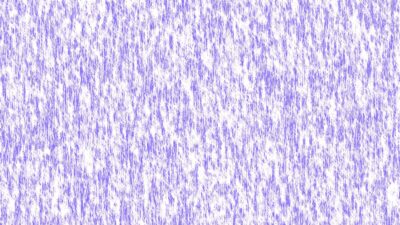
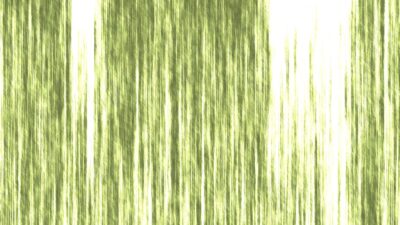
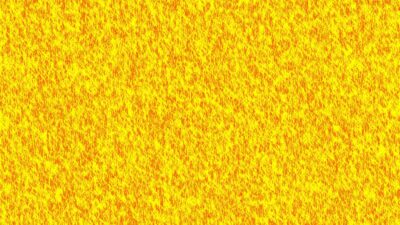
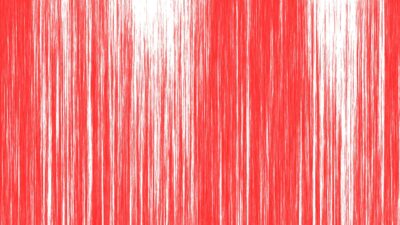
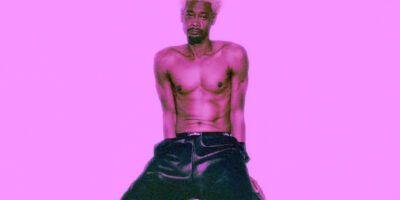


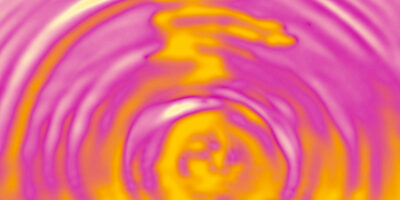






Comments